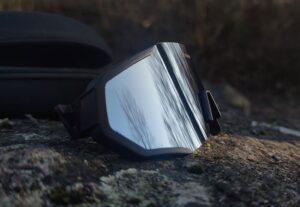Are you gearing up for unforgettable camping adventures? Choosing the right car is your first step toward unlocking the wonders of the great outdoors. Whether you’re a seasoned camper or embarking on your first journey into the wilderness, selecting the perfect vehicle is crucial for a smooth, comfortable, and enjoyable camping experience.
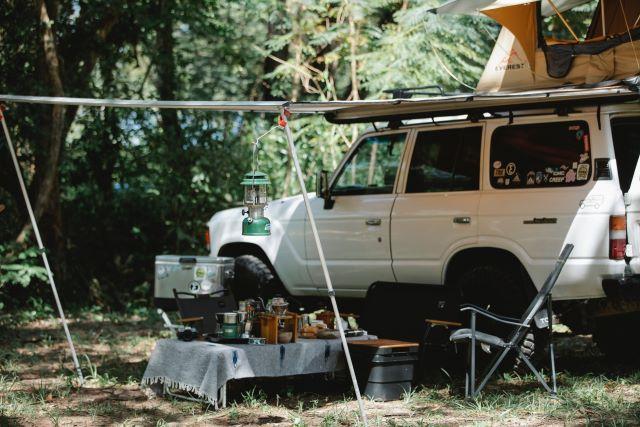
In this guide, we’ll walk you through the essential considerations and top tips for finding the ideal car to match your camping aspirations. From compact cars for solo escapades to spacious SUVs for family camping trips, we’ve got you covered. Let’s hit the road and explore the world of camping vehicles!
Choosing a Camping Car is a Challenge
Indeed, selecting the right camping car can be quite a challenge. With a myriad of options available, from compact hatchbacks to rugged 4x4s and spacious RVs, the choices can be overwhelming. Your decision should align with your camping style, preferences, and the destinations you plan to explore.
1. Vehicle Size and Space
Space Requirements for Camping Gear and Supplies
When it comes to choosing a camping car, size matters. The first factor to consider is the space you’ll need to accommodate your camping gear and supplies. If you’re an avid camper who loves to bring along a variety of equipment, such as tents, sleeping bags, cookware, and outdoor gear, you’ll require ample storage space. Larger vehicles like RVs and camper vans offer generous storage capacities, making them ideal for extended camping trips.
On the other hand, if you prefer minimalist camping with just the essentials, a smaller car or even a hatchback might suffice. It’s crucial to evaluate your gear and how much room it occupies to ensure your chosen vehicle can handle the load. Additionally, consider the number of people joining your camping adventures, as more passengers may require more interior space. By assessing your storage and space needs, you can narrow down your options and find a camping car that fits your requirements perfectly.
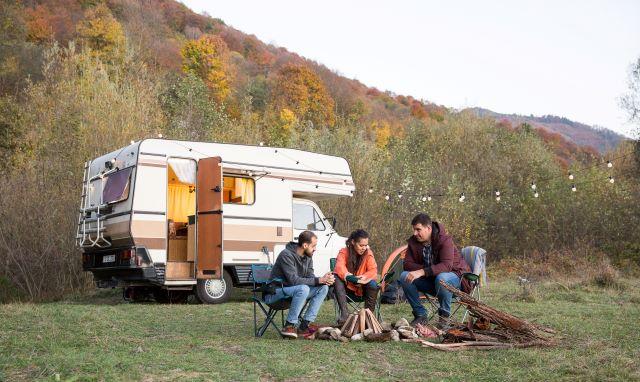
Number of Passengers and Sleeping Arrangements
The number of passengers and your sleeping arrangements are essential factors to consider when choosing the right camping car for your adventures. First, think about how many people will be joining you on your camping trips. Are you a solo adventurer, traveling with a partner, or taking the whole family along? Your chosen vehicle should comfortably accommodate everyone.
Additionally, consider the sleeping arrangements within the car. Some camping cars come with built-in sleeping quarters, like foldable beds or rooftop tents, while others may require you to set up a separate sleeping area with camping gear. Ensure that there are enough sleeping spaces for everyone and that they provide the comfort and privacy you desire.
For example, if you’re a couple who prefers a cozy setup, a camper van with a double bed might be suitable. On the other hand, larger families might opt for spacious RVs with multiple sleeping areas.
2. Off-Road Capability
Choosing between 4×4, AWD, or standard 2WD vehicles
When selecting the right camping car for your adventures, one critical consideration is its off-road capability. This decision often involves choosing between 4×4, all-wheel drive (AWD), or standard 2WD vehicles, each with its advantages and limitations.
4×4 Vehicles: If your camping expeditions frequently take you off the beaten path, a 4×4 vehicle could be your ideal choice. These vehicles provide superior traction and control on challenging terrains, such as dirt roads, gravel trails, and muddy or snowy conditions. They’re designed to tackle steep inclines, uneven surfaces, and rough landscapes, giving you the freedom to explore more remote camping spots.
AWD Vehicles: All-wheel drive (AWD) vehicles offer a balance between on-road and off-road capabilities. They provide power to all four wheels, enhancing stability and grip in various driving conditions. AWD is suitable for campers who occasionally venture off-road but still want a comfortable and versatile vehicle for daily driving.
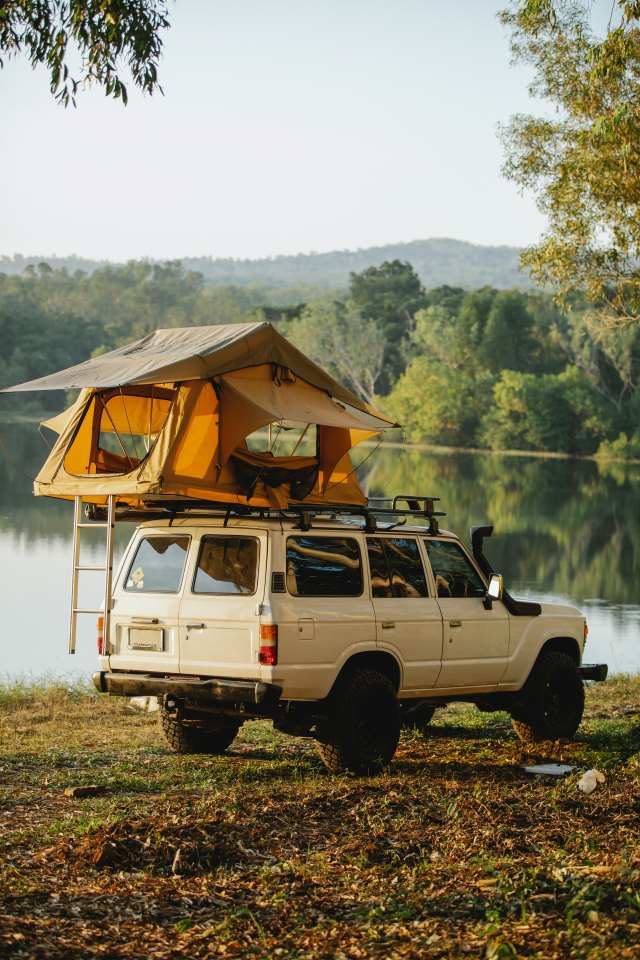
2WD Vehicles: Standard two-wheel drive (2WD) vehicles are typically more fuel-efficient and budget-friendly compared to 4×4 and AWD options. While they may not handle extreme off-road challenges as well, they are perfectly suitable for camping in established campgrounds and accessible outdoor destinations.
Your choice should align with your camping style and the types of environments you plan to explore. If you’re a hardcore off-road enthusiast seeking rugged terrain, a 4×4 might be your best bet. AWD offers versatility for a range of conditions, while 2WD vehicles are practical for less demanding camping trips. Weigh your priorities and terrain requirements to make an informed decision about your camping car’s off-road capabilities.
3. Fuel Efficiency and Range
Cost-effective and Eco-friendly Camping Trips
When selecting a camping vehicle, considering fuel efficiency, range, and eco-friendliness is vital. Opt for vehicles with good fuel efficiency, and smaller and modern engines for cost-effective trips. Longer ranges, found in diesel or hybrid vehicles, are ideal for remote areas.
For an eco-friendly approach, explore electric or hybrid options, which emit fewer pollutants and reduce your environmental impact. Balancing these factors ensures you can explore diverse camping spots while saving costs and being environmentally responsible.
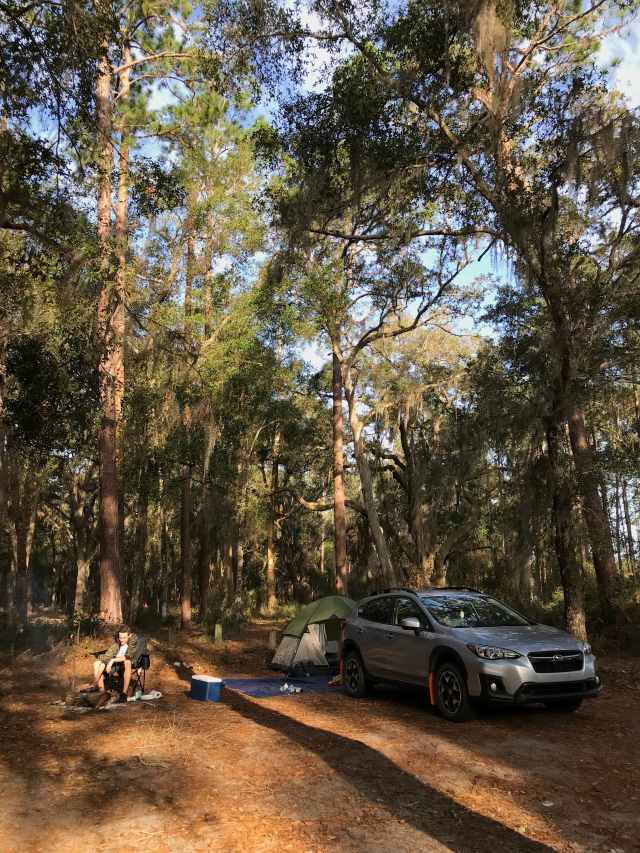
Vehicle’s range on Long-Distance Journeys
Assessing a vehicle’s range for long-distance journeys is crucial when choosing a camping car. Depending on your adventure style, look for vehicles with extended fuel or electric range capabilities. Diesel or hybrid vehicles are known for their longer ranges, making them suitable for remote camping locations.
These options ensure you have the flexibility to explore various destinations without constant refueling or recharging, enhancing your camping experience.
4. Towing Capacity
Towing a Trailer or Camper
Towing capacity is a significant factor to consider when selecting the right camping car. Determine whether you plan to tow a trailer or camper and check the vehicle’s towing capabilities. Larger SUVs, trucks, and some crossover vehicles offer higher towing capacities, allowing you to bring along additional gear or enjoy the comforts of a camper.
Ensure your chosen car can handle the load you intend to tow to avoid any complications during your camping adventures.
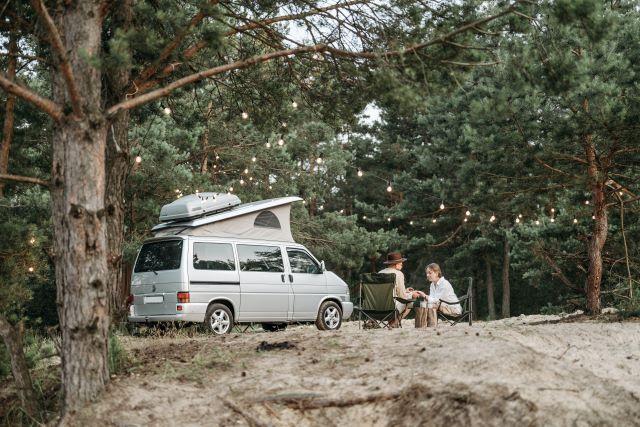
Compatibility with Camping Equipment
Ensuring compatibility with your camping equipment is vital when choosing the right car for your outdoor adventures. Evaluate the vehicle’s storage options, roof racks, and interior space to accommodate tents, sleeping bags, cooking gear, and other essentials. Consider how easily you can access your gear, especially when you’re out in the wilderness.
A car that fits your camping equipment seamlessly will enhance your camping experience and make packing and unpacking a breeze.
5. Storage and Accessibility
Storage Compartments and Roof racks
Storage and accessibility are key factors in selecting the perfect car for your camping escapades. Look for vehicles equipped with ample storage compartments and roof racks, as these features can significantly enhance your camping experience. Having designated spaces for camping gear, like tents, sleeping bags, cookware, and other essentials, will keep your vehicle organized and make packing and unpacking a breeze.
Roof racks offer additional storage options for items like kayaks, bikes, or rooftop tents, giving you more flexibility for various outdoor activities. Easy access to your gear ensures a hassle-free and enjoyable camping adventure.

Accessing Gear and Camping Essentials
Accessing your gear and camping essentials easily is crucial for a smooth outdoor adventure. When choosing a camping car, consider vehicles with features that make reaching your equipment effortless. Look for cars equipped with convenient storage compartments, roof racks, or cargo systems.
These options provide dedicated spaces for camping gear, making packing and unpacking a breeze. Additionally, well-designed storage solutions can keep your gear organized and easily accessible throughout your trip. Whether it’s setting up your campsite or grabbing a cooking utensil, the right storage and accessibility features can significantly enhance your camping experience.
6. Comfort and Amenities
Interior Features and Amenities
Comfort and amenities play a significant role in enhancing your camping adventures. When evaluating potential camping cars, take a close look at their interior features and amenities. Consider factors like seating comfort, climate control, and entertainment options, especially if you’ll be spending extended periods on the road. Look for vehicles that offer spacious and well-designed interiors, allowing you to relax during downtime or inclement weather.
Amenities such as built-in kitchenettes, refrigerators, and comfortable sleeping arrangements can elevate your camping experience. Some camping cars even come with bathroom facilities, ensuring you have essential comforts wherever you roam. By prioritizing comfort and amenities, you’ll create a more enjoyable and memorable camping journey.
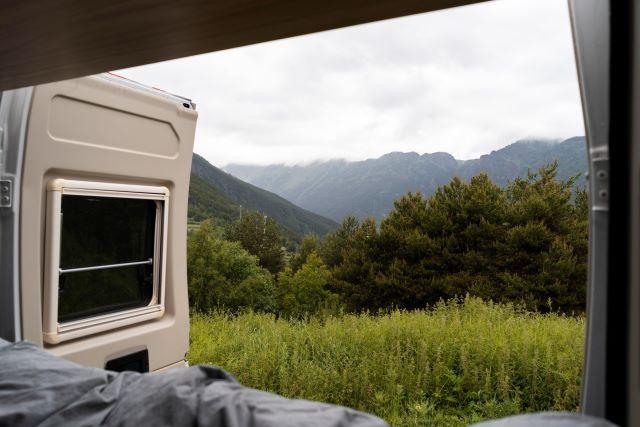
Seating Capacity, Climate Control, and Entertainment Options
Seating capacity, climate control, and entertainment options are essential aspects of choosing the right camping car. Consider how many people you’ll be traveling with and ensure the vehicle has enough seating for everyone. Look for climate control features like air conditioning and heating to keep the interior comfortable in various weather conditions.
Entertainment options can make long drives more enjoyable. Some camping cars come equipped with multimedia systems, including screens, audio systems, and connectivity features. These can keep passengers entertained during the journey, especially on extended road trips. Prioritizing these factors ensures that your camping car not only meets your travel needs but also enhances your overall camping experience.
7. Safety Features
Safety should be a top priority when choosing a camping car for your adventures. Look for vehicles equipped with advanced safety features to ensure a secure and worry-free trip. Some key safety considerations include:
- Airbags: Check if the vehicle has multiple airbags, including front, side, and curtain airbags, to protect passengers in case of a collision.
- Antilock Braking System (ABS): ABS helps maintain steering control during hard braking, reducing the risk of skidding.
- Electronic Stability Control (ESC): ESC assists in maintaining vehicle stability during sudden maneuvers or slippery road conditions.
- Traction Control System (TCS): TCS prevents wheel spin during acceleration, enhancing grip on the road.
- Blind-Spot Monitoring: This feature alerts you when there are vehicles in your blind spots, increasing safety during lane changes.
- Forward Collision Warning: A system that warns you of potential front-end collisions, often coupled with automatic emergency braking.
- Adaptive Cruise Control: This feature adjusts your vehicle’s speed to maintain a safe following distance from the car ahead.
- Lane Departure Warning and Lane Keeping Assist: These systems help you stay in your lane and alert you if you drift unintentionally.
- Backup Cameras: A backup camera aids in parking and reversing safely.
- Security Systems: Ensure the car has an effective security system to protect both the vehicle and your belongings during camping trips.
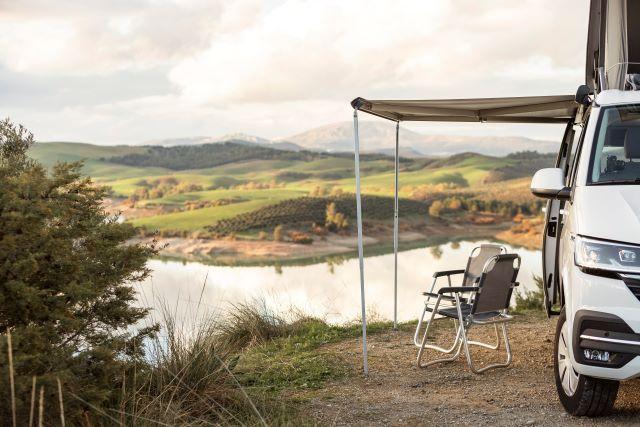
By prioritizing safety features, you can enjoy your camping adventures with peace of mind, knowing that your camping car is equipped to handle various situations and keep you and your passengers safe.
8. Maintenance and Reliability
Researching the Vehicle’s Ratings
When selecting a vehicle for your camping adventures, it’s essential to consider its maintenance requirements and overall reliability. Here’s what to keep in mind:
1. Reliability Ratings: Research the reliability ratings of the make and model you’re interested in. Reliable vehicles are less likely to break down during your camping trips and require fewer repairs.
2. Maintenance Costs: Different vehicles come with varying maintenance costs. Consider factors like oil changes, tire replacements, and overall upkeep expenses. Some brands offer lower maintenance costs than others.
3. Service Intervals: Check the manufacturer’s recommended service intervals for your chosen vehicle. Longer intervals can be more convenient for camping trips, as you’ll spend less time on maintenance.
4. Access to Service Centers: Ensure that there are service centers or mechanics knowledgeable about your vehicle’s make and model in areas where you plan to camp. This can be crucial for quick repairs if needed.
5. Warranty Coverage: Explore the warranty coverage offered by the manufacturer. A good warranty can save you money on unexpected repairs and provide peace of mind.
6. Online Reviews: Read online reviews and forums to gather insights from other campers who own the same vehicle. They can provide valuable information about common issues and experiences with maintenance and reliability.
7. Fuel Efficiency: Consider the vehicle’s fuel efficiency, as this can affect your overall camping budget. Fuel-efficient vehicles are not only cost-effective but also better for the environment.
By thoroughly researching the maintenance and reliability aspects of your chosen camping car, you can ensure that your adventures are more enjoyable and free from unexpected breakdowns or repair hassles.
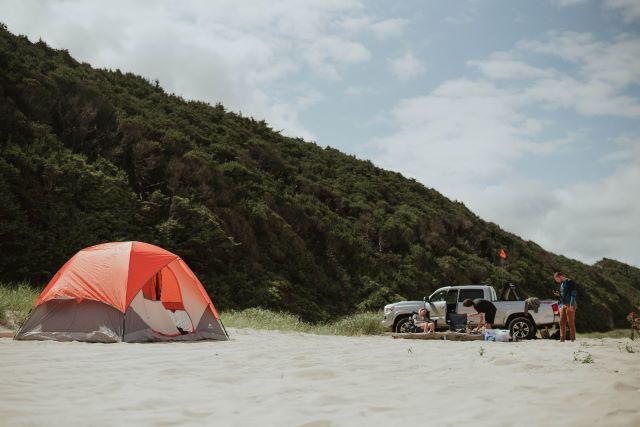
Good Reputation for Durability and Longevity
Opting for a camping vehicle with a good reputation for durability and longevity is a smart move for any outdoor enthusiast. Here are some key factors to consider:
1. Manufacturer History: Research the manufacturer’s history and track record for producing vehicles known for their longevity. Some brands have built a reputation for crafting durable and reliable cars that withstand the test of time.
2. Model Reliability: While a manufacturer may have a solid reputation, it’s also essential to assess the specific model you’re interested in. Look for reviews and reports on the long-term reliability of that particular vehicle.
3. Resale Value: A car with strong resale value typically indicates that it retains its quality and functionality over the years. Resale value can be a good indicator of a vehicle’s longevity.
4. Mileage and Age: Check the mileage and age of used vehicles you’re considering. Low mileage and well-maintained older vehicles can still offer many years of reliable service.
5. Owner Feedback: Seek out feedback from current owners of the vehicle model you’re eyeing. Online forums, reviews, and social media groups can provide valuable insights into real-world experiences.
6. Certified Pre-Owned (CPO) Options: Consider certified pre-owned vehicles if available. CPO cars undergo rigorous inspections and often come with extended warranties, offering additional peace of mind regarding their longevity.
7. Maintenance Records: If you’re buying a used vehicle, ask for its maintenance records. A well-documented service history can indicate that the car has received proper care and attention.
8. Reliability Surveys: Refer to reliability surveys and reports from trusted sources like Consumer Reports, J.D. Power, and others. These surveys often highlight vehicles known for their durability.
9. Mechanic’s Inspection: Before finalizing your purchase, have a trusted mechanic inspect the vehicle. They can provide valuable insights into its condition and potential issues.
Investing in a camping vehicle with a reputation for durability and longevity ensures that your adventures can continue for many seasons without being hindered by unexpected breakdowns or frequent repairs.
9. Budget and Affordability
When choosing the right camping vehicle, your budget and affordability play a pivotal role in the decision-making process. Here’s what you should consider:
1. Vehicle Cost: Determine how much you’re willing to spend on the initial purchase of the vehicle. Keep in mind that there might be additional costs for customization, accessories, and maintenance.
2. Operating Costs: Beyond the purchase price, factor in ongoing operating costs. This includes fuel, insurance, maintenance, and potential repairs. Some vehicles are more fuel-efficient than others, so consider your expected travel mileage.
3. Financing Options: Explore financing options, including loans and leases, to understand how they fit into your budget. Calculate the monthly payments and interest rates to ensure they align with your financial capabilities.
4. Customization Costs: If you plan to customize your camping vehicle with features like a camper conversion, roof rack, or other accessories, include these expenses in your budget. Customization costs can vary widely.
5. Depreciation: Be aware that vehicles generally depreciate over time. Consider how depreciation might impact your long-term budget, especially if you plan to resell the vehicle later.
6. Insurance Rates: Different vehicle models may have varying insurance rates. Obtain insurance quotes for the vehicles you’re considering to understand the ongoing insurance costs.
7. Taxes and Fees: Research the tax and registration fees associated with your chosen vehicle. These costs can differ depending on your location and the vehicle’s value.
8. Emergency Fund: Always maintain an emergency fund for unexpected expenses, whether it’s a sudden repair or other unforeseen costs related to your camping vehicle.
9. Total Cost of Ownership (TCO): TCO encompasses all expenses related to owning and operating a vehicle over its lifespan. It’s a comprehensive way to evaluate the true cost of your chosen vehicle.
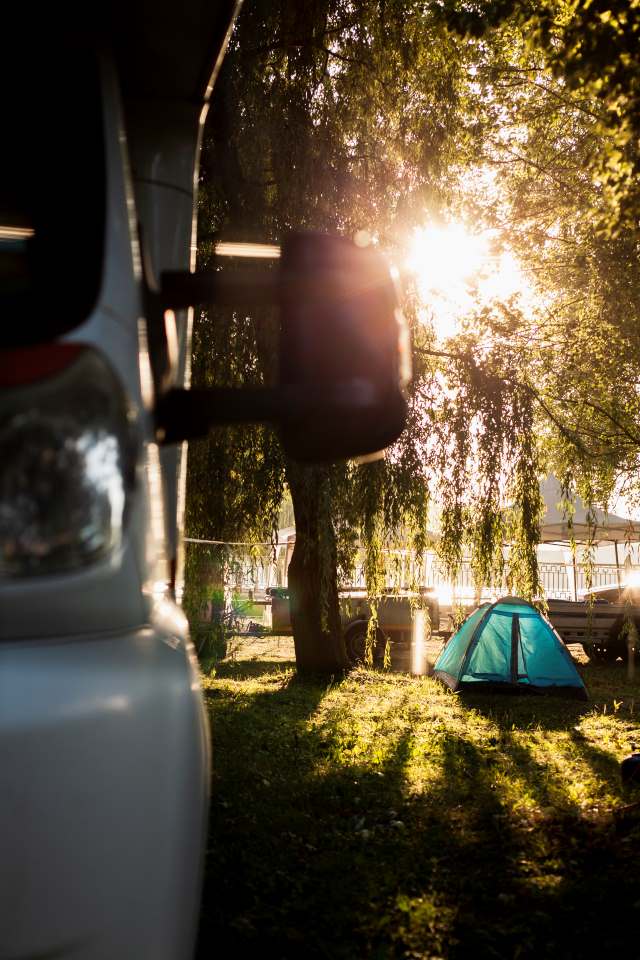
Balancing your budget and affordability with your camping vehicle choice is crucial for enjoying outdoor adventures without financial strain. Carefully assess all costs associated with your vehicle to ensure it aligns with your financial goals and lifestyle.
Final Thoughts
When it comes to selecting the ideal camping vehicle for your adventures, it’s not just a decision but a journey in itself. Your choice should align with your unique needs and preferences, ensuring that every camping trip becomes a memorable and enjoyable experience. It’s important to prioritize factors like space, off-road capability, fuel efficiency, towing capacity, compatibility with camping gear, comfort, safety features, maintenance, and affordability.
Take your time to research, test drive, and consider your budget wisely. Safety should always be at the forefront of your decision, and any customizations should enhance your overall camping experience. And don’t forget to enjoy the process—it’s all part of the adventure!
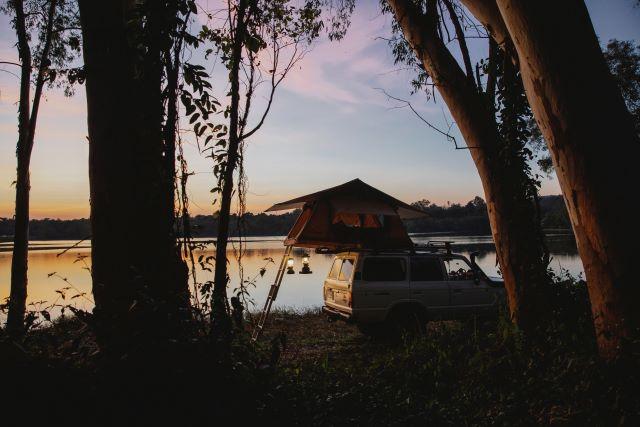
Ultimately, your camping vehicle will become your trusted companion as you explore the great outdoors, providing comfort, convenience, and countless opportunities for new adventures. So, choose wisely and embark on a journey filled with excitement, exploration, and lasting memories.


